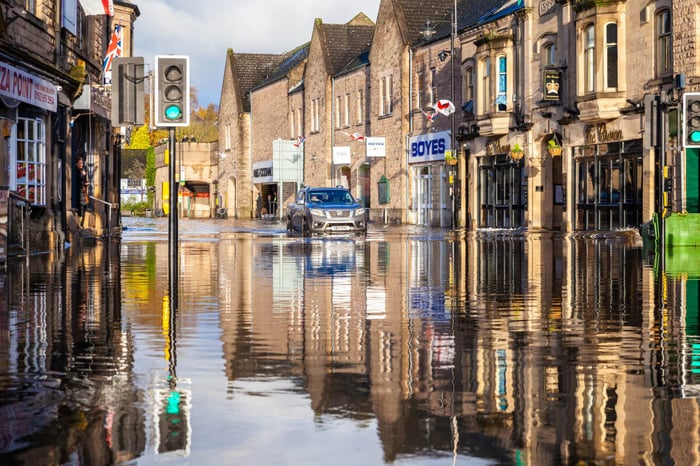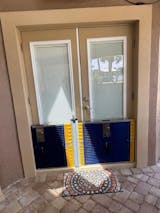Floods can cause significant damage to property, the environment, and infrastructure. More importantly, floods—especially flash floods—have been responsible for countless deaths. Knowing where floods happen and why can help people prepare for them. Here's what to know about the different types of flooding so you have a better idea if your home might be at risk and how you should prepare.
What Causes Floods?
Floods can be caused by a variety of factors, including:
-
Heavy rain
-
Hurricanes
-
Melting snow
-
Rapid ice melts
-
Groundwater overload
-
Tsunamis
-
Storm surges
Coastal, flat, mountain—no matter the landscape, neither is safe from flooding. Even areas without a large amount of water are susceptible to flooding. Groundwater overload comes to mind in this scenario.
Groundwater overload is lesser known than heavy rain or hurricanes, for example. Let's learn a bit more about this flood-causing phenomenon.
Groundwater Overload
Groundwater overload occurs when there is an excessive amount of water stored underground. This is due to a variety of reasons, including:
-
Over-pumping from wells or other sources
-
Agricultural practices that require large amounts of water
-
Increased urbanization
-
Deforestation
The excess water can lead to flooding and other environmental hazards such as soil erosion. Groundwater overload can also cause severe damage to infrastructure such as bridges, roads, homes, and businesses.

Which Areas are Most Prone to Flooding?
Communities near water, such as rivers or lakes, have higher risks of flooding due to their proximity. Other places that experience high levels of precipitation are also susceptible to flooding.
Additionally, flat or low-lying areas with poor drainage systems are more likely to experience flooding. Some urban areas are particularly vulnerable because their infrastructure is not designed for flood prevention. They lack the vegetation that would normally absorb excess water from the ground. Urban development also increases runoff from surfaces like parking lots or roads, further contributing to flooding.
States Most Vulnerable to Flooding
Some states more vulnerable to floods than others include Texas, California, Louisiana, and Pennsylvania. Three of these—Texas, California, and Louisiana—make sense initially. After all, they are coastal states, and Texas and Louisiana are susceptible to hurricanes.
Pennsylvania, on the other hand, does not have a long boundary that touches water. Why, then, is there so much flooding in the state? The answer is that Pennsylvania has numerous rivers, including three major ones: Ohio, Delaware, and Susquehanna. Each of these significant rivers can flood during heavy rainfall, contributing to flash flooding.
Flash Floods: Everything You Need to Know
Flash flooding is a phenomenon that occurs when heavy rains overwhelm a location in a short amount of time. This rain saturates the ground and makes it more difficult for the soil to absorb additional water.
This is why keeping an eye on weather forecasts during prolonged rainfall is essential. If it's known there will be an extended period of precipitation, residents in that area should be sure to take extra precautions.
Where Do Flash Floods Happen?
Flash floods can happen anywhere. More commonly, however, they occur near:
-
Rivers and streams, as these bodies of water, can fill up quickly after a heavy rainstorm.
-
Low-lying areas such as valleys and basins due to their inability to absorb excess water quickly.
-
Areas with steep terrain because the runoff from heavy rain can quickly accumulate and cause flooding in nearby areas.
Having a plan ready during a flash flood watch or warning is essential. People should know evacuation routes and a designated meeting place during separation.
Keep Your Home Safe & Prepared
Although no home is 100% safe from floods, certain areas are more prone to flooding than others. These areas typically experience heavy rains and/or snowmelt, as well as poor drainage. If you live in an area prone to flooding, it's essential to protect your home. This may include investing in flood insurance, buying flood barriers, or sandbagging. Don't wait until it's too late — take action today to help protect your home from floods.
$949.00
Floods are becoming more common around the world. What was once a 100-year phenomenon is now a seasonal trend that homeowners must deal with. That’s EXACTLY why you need this Dam Easy Ultimate Flood Barrier! An excellent alternative to heavy… Read MoreUltimate Flood Barrier



















